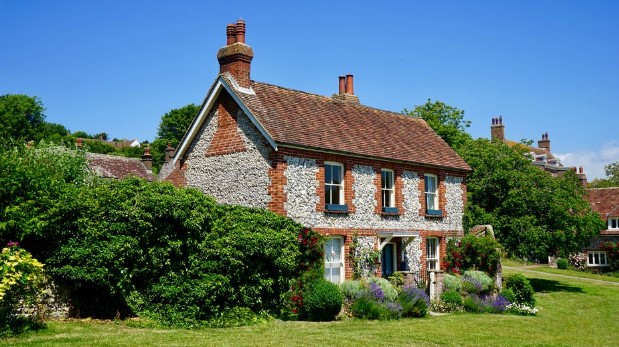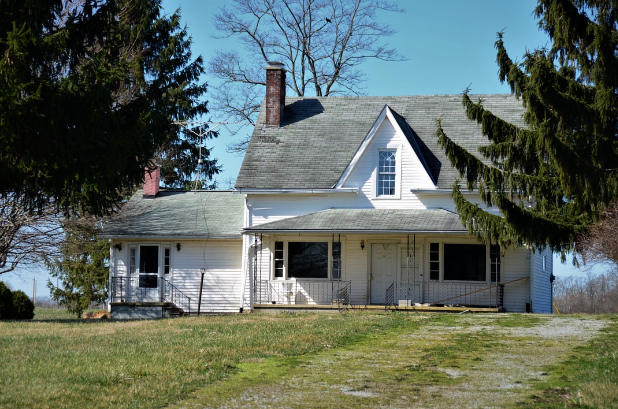Purchasing the perfect home for your retirement is an exciting and important decision. It marks the end of your working years and the beginning of a new chapter filled with relaxation, leisure, and enjoyment. However, finding the right home can be challenging with many factors to consider. That’s why we’ve prepared this comprehensive guide to help you navigate through the process and make an informed decision. From understanding your needs and wants to budgeting and location considerations, this guide covers all the essential aspects of purchasing a home for your retirement.

Determining Your Retirement Needs and Wants
Before you start looking for a retirement home, determine your needs and wants. This will help narrow down your search and make sure that the home you choose meets all your requirements. Needs refer to the essential features that a home must have for you to live comfortably, such as accessibility, safety, and proximity to family or healthcare facilities. On the other hand, wants are the non-essential features that would be nice to have but are not crucial. These may include a large garden, a swimming pool, or a home office. Knowing your needs and wants will help you prioritize what is important and make a more focused decision when selecting your retirement home.
Choosing the Right Location for Your Retirement
Choosing the right location for your retirement is essential as it can greatly impact your overall happiness and quality of life. Factors to consider when selecting a location include climate, cost of living, access to healthcare, and proximity to family and friends. You may also want to think about the type of community you want to live in – do you prefer a quiet suburban neighborhood or a more active retirement community? Consider the tax implications of different states and how they may affect your retirement income. For instance, you can browse Sunbelt home sales listings or consult a real estate agent who specializes in retiree properties to find the perfect location for your retirement home. It’s not just about the house itself but also the surrounding area and amenities that will contribute to your overall retirement experience.
Setting a Realistic Budget for Your Retirement Home
After identifying your needs and desires, establish a practical budget for your retirement residence. This will help you narrow down your search and avoid overspending. Take into consideration all the costs associated with purchasing and maintaining a home, including property taxes, insurance, utilities, and any potential renovations or repairs that may be needed. It’s also important to factor in potential changes to your income during retirement and any long-term care expenses that may arise. Consulting with a financial advisor can help determine an appropriate budget for your retirement home. Leave also some room for unexpected expenses or leisure activities that you may want to enjoy during your retirement years.

Considering the Size and Layout of Your Retirement Home
When purchasing a retirement home, consider the size and layout of the house. As you age, mobility may become an issue, so having a single-story house or one with an accessible layout is essential. Additionally, think about your future needs – will you need space for visiting family members or live-in caregivers? However, downsizing can also be a smart option, as it can save you money on maintenance and utilities. Think about the number of bedrooms and bathrooms you need, as well as the overall square footage of the house. Keep in mind that smaller homes are often easier to maintain and can provide a more comfortable living space during retirement. Strike a balance between having enough space for your needs while also being mindful of potential future limitations or expenses.
Evaluating Amenities and Features for Comfort and Convenience
Consider the amenities and features that will make your daily life more comfortable and convenient. This may include things like a well-equipped kitchen, laundry facilities, or an attached garage. Think about what activities you enjoy and look for homes with amenities to support those hobbies or interests. For example, if you love golfing, consider a home in a community with access to a golf course. If you enjoy socializing, look for a home in a neighborhood with communal spaces or planned activities. Moreover, think about features that can make your home more energy-efficient and cost-effective, such as solar panels or smart home technology. These amenities may not be essential, but they can greatly enhance your retirement experience and add value to your home in the long run. Prioritize which amenities and features are most important to you and make sure they align with your budget and overall needs.
Understanding the Legal Aspects of Purchasing a Home in Retirement
Understanding the legal aspects of purchasing a retirement home is important to ensure a smooth and successful transaction. Familiarize yourself with all the necessary documents, contracts, and laws involved in buying a home. Some states may have specific regulations or tax policies for retirees, so you need to research and understand these before making any decisions. Consider consulting with a real estate lawyer to review any contracts or agreements before signing them. Make sure all legal documents are up to date and accurate, including titles and insurance policies. This will provide you with peace of mind and protect your investment in the long run. Anticipate future possibilities like selling the home or passing it down to heirs.
Navigating the Home Buying Process for Retirees: Tips and Tricks
When buying a retirement home, it’s different from purchasing at a younger age. Consider these tips:
- Start early – Plan for your retirement home.
- Use online resources – Research homes, and locations, and connect with specialized real estate agents.
- Visit potential locations – Get a feel for the community before deciding.
- Rent first – Test the area before committing to a purchase.
- Be flexible – Compromise on wants for needs.
- Seek professional advice – Consult real estate agents, financial advisors, and lawyers to make informed decisions.
Purchasing the perfect home for your retirement requires careful consideration and planning. Start early, utilize resources, and seek professional advice to make the process as smooth as possible. With the right approach, you can find the ideal retirement home that meets all your requirements and provides a fulfilling lifestyle in this new chapter of your life.






